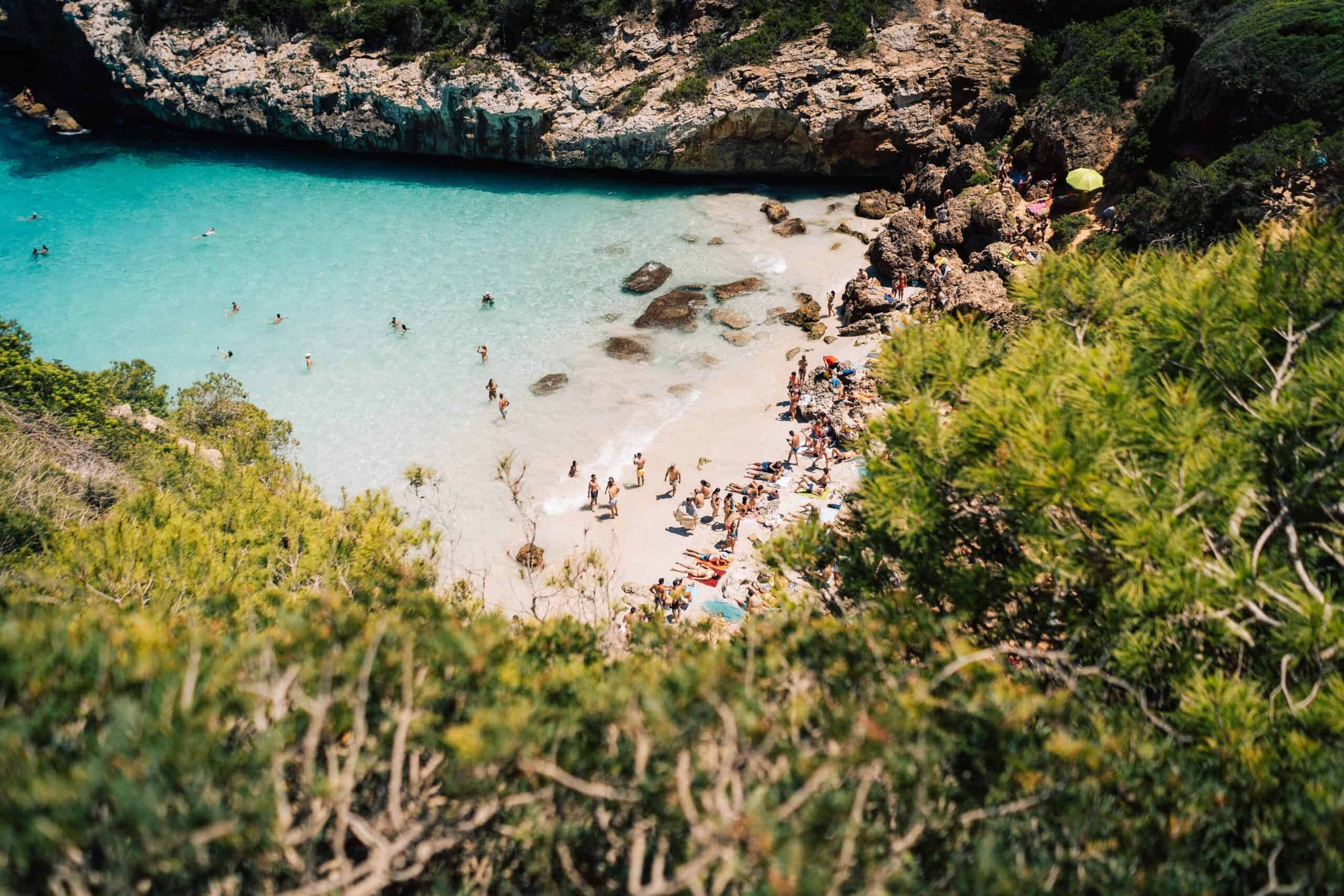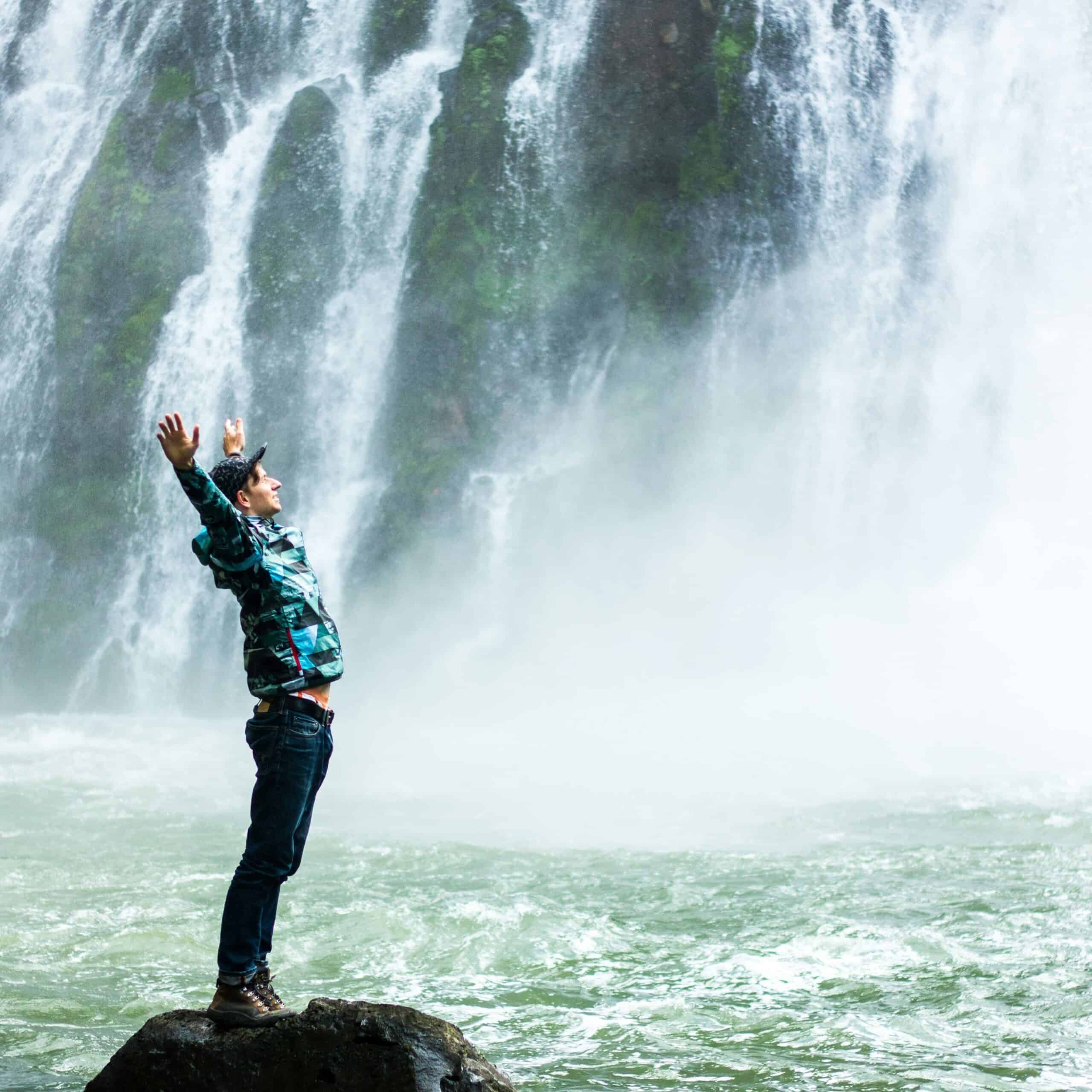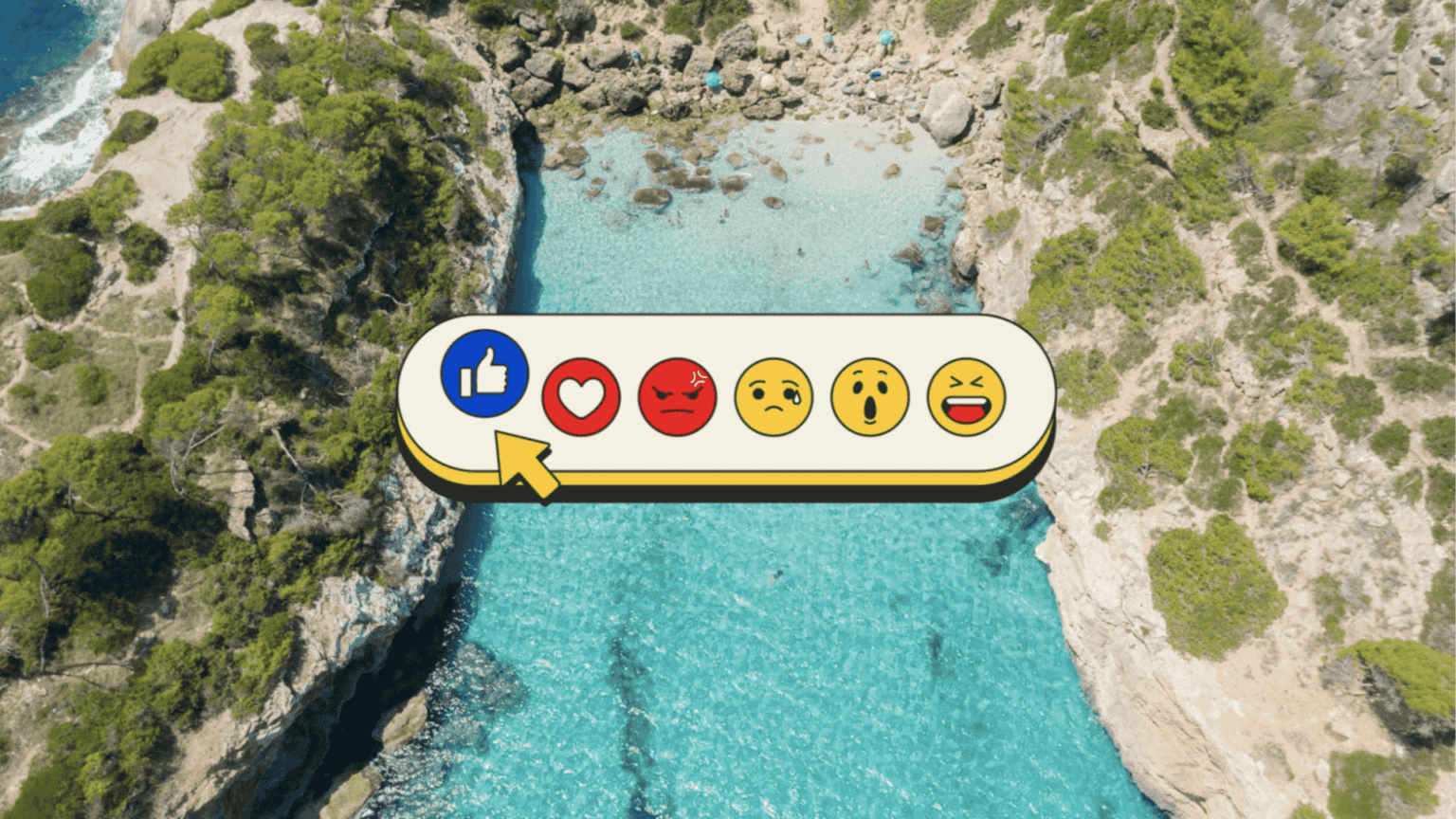The beaches of Mallorca have become the latest battleground in the ongoing conflict between residents and tourists taking place in Europe’s most popular destinations.
Locals of the Spanish island recently descended en masse to one of its most picture-perfect beaches to protest what they see as unsustainable visitor numbers.
“Go, go, go!” they chanted at hapless holidaymakers hoping to enjoy a day in the sun, unfurling a banner that read “Occupy Our Beaches” and placards saying “Beware of locals, we are angry”.
Why do they feel like this?
Mallorca, which lies roughly 200km off the coast of mainland Spain, is the largest of the Balearic Islands and houses the country’s third-largest airport, handling around 30 million passengers every year.
Although Mallorca’s economy is heavily dependent on tourism, there has been growing resentment in recent years that the sheer number of visitors is making the island unliveable for locals.
Chief among these concerns are property prices that have risen some 250% in a decade while wages have stagnated over the same period. Other concerns include the erosion of Balearic culture in favour of the island’s international visitors.
The recent flashpoint for protests has been at Caló des Moro cove, a tiny stretch of rocky shoreline surrounded by limestone cliffs and long known as Mallorca’s ‘best kept secret’.
That is, until the crowds arrived.

The secret’s out
Caló des Moro had previously escaped the tourist hordes present in other parts of Mallorca due to its size, location and lack of vehicle access (visitors must follow an uneven trail by foot to reach the cove).
But the rise of social media travel influencers has transformed the status of previously little-known spots like Caló des Moro by introducing them to an online audience of millions.
This audience, hungry for fresh travel content, especially lesser-trodden destinations, are flocking to beaches, villages, mountains and more that they’ve encountered through TikTok, Instagram, or YouTube videos from their favourite creators.
However, these tucked away spots often cannot handle the numbers that social-media fame brings—and that contributes to an already-growing sense from locals that their home is being overrun.
Ironically, the lure of travel’s best-kept secrets is ensuring they’re anything but.

Whose fault is this?
The blame for overtourism is usually a constellation of factors.
One of these is certainly the diversification of travel information in recent years. As holidaymakers’ reliance on traditional travel agents and tour operators has waned, the popularity of content creators has grown to fill the void.
Unlike more traditional sources, however, the modern content creator is even less accountable for the impact they may have on local areas.
Similarly, local authorities’ lack of action on this issue, whether limiting visitor numbers, supporting residents’ housing needs, or otherwise shaping tourism to be more equitable to non-stakeholders has undoubtedly played a major part in the disgruntlement we’re now seeing.
And finally, yes, the tourists themselves. Although following a travel recommendation on Instagram may not feel like a mortal sin, a little more awareness about the issues of overtourism could go a long way.

Here’s what you can do about it
Nobody wants to feel like their holiday is negatively impacting the lives of locals. Or that they’ll be ushered off a beach by irate Spaniards mid-tan.
As a responsible traveller, therefore, a little research about your destination is worth the effort to enjoy your holiday in peace (and with a clear conscience).
· Read up on ‘off-the-beaten-path’ destinations to ensure they’re not currently being swamped by visitors
· Consider alternative cities/islands/countries that aren’t tourist hot spots (check out our destination dupes for some inspiration)
· Be mindful of the size of your group – that pretty little Greek taverna can probably absorb a handful of visitors but not a 20-strong tour group
· Consider using local guides who will be much more ‘plugged in’ to residents’ concerns when planning excursions
· Accept that sometimes ‘best-kept secrets’ should stay that way









